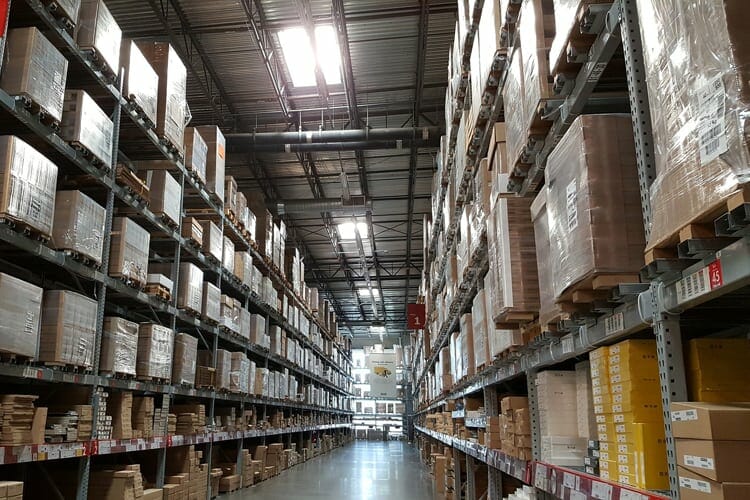The global economic outlook is increasingly uncertain, with many businesses feeling the effects of market volatility and a slowdown in consumer spending. With inflation levels hitting a 40-year high, an aggressive increase in interest rate policy, and rising political instability across the globe, it’s no surprise that many companies are hesitant to invest in new projects or expansions.
Yet despite all this uncertainty, there’s one sector that seems to be holding strong: eCommerce. Many companies rooted in the online retail space are seeing a surge in demand for their products and services, which, in turn, is driving a steady demand for commercial real estate leases.
In Arizona alone, dozens of eCommerce companies are signing new leases and expanding their operations. From well-known players like Amazon, Lowe’s, and Puma, to smaller eCommerce startups, these companies are tapping into Arizona’s growing tech and eCommerce markets to secure prime warehousing space for their operations.
As of Q3 2022, the Phoenix metro had a total of 21.7 million square feet of industrial space absorbed, while vacancy was at a meager 3.1%. Clearly, eCommerce is driving a lot of this growth, and it doesn’t appear to be slowing down anytime soon.
Why eCommerce remains resilient
The eCommerce sector is faring better than most due to a number of factors, including the surge in online shopping during the pandemic and increasing consumer confidence in buying products from websites. Additionally, with more businesses adopting an omnichannel approach to sales, many companies are finding that having warehouses near major cities helps them respond quickly to customer orders.
Moreover, as supply chains become more efficient and technology advances, eCommerce companies are finding new ways to remain competitive. Whether it’s through robotics, automation, or leveraging data-driven insights for better decision-making, eCommerce businesses are staying agile and flexible in the face of economic uncertainty.
“By optimizing their supply chain, businesses can trim excess costs, increase efficiency, and shorten shipping lead times. They will then be able to offer better, cheaper, and faster service to customers. A positive buying experience also leads to greater customer loyalty, which is vital during an economic downturn as it can be challenging to attract new customers,” said Roei Yellin, Co-Founder & Chief Revenue Officer of 8fig.
After all, we are now living in the era of digital transformation, and companies that can successfully adapt to an ever-changing climate will be well-positioned for success. By investing in eCommerce operations and leasing space in major cities like Phoenix, these companies are setting themselves up for long-term success despite ongoing economic uncertainty.
Of course, it remains to be seen if the eCommerce sector can continue to defy gravity. But for now, at least, the eCommerce and online retail space is proving to be a bright spot in an otherwise bleak economic environment.
Arizona as a hub for digital commerce
Arizona is quickly becoming a major player in the world of eCommerce. Let’s take a look at some of the key factors contributing to the popularity of the Grand Canyon State as a digital commerce hub:
Strategic location
Arizona is strategically located in the center of the western United States, making it an ideal launching pad for all kinds of businesses. Not only does this provide easy access to major markets like Los Angeles, San Francisco, and Las Vegas, but it also provides close proximity to Mexico.
When asked about the influx of business to the state and the logistical advantages of Phoenix warehouses, Mike Haenel, vice chairman with Cushman & Wakefield, said that he believes “we’re going to see more of the same in 2023 from a demand and supply perspective from different companies moving and expanding to Phoenix. Whether it’s food and beverage, manufacturing, chip-related uses, data centers, eCommerce, 3PL continues to be strong.”
Low operating costs
Greater Phoenix’s operating costs are 36% less than in California, according to the Greater Phoenix Economic Council. As businesses look for ways to save money, many are turning to Arizona as a more cost-effective option than California. Not only does Arizona boast one of the lowest corporate income tax rates in the nation at 4.9%, but businesses also don’t incur a business inventory tax. Additionally, it is designated as a right-to-work state, making it an ideal locale for any company trying to establish and maintain successful operations.
Growing population and robust job market
As the population in Arizona continues to grow, so does the talent pool. With a population of 7.2 million people and a median age of 37.9 years, the state is home to a diverse and educated workforce. With the low cost of living, many businesses are finding that they can attract and retain talent more easily. Additionally, the state has seen a significant increase in job growth over the past several years, making it an attractive option for eCommerce businesses looking to expand.
Final word
Arizona is quickly becoming a major player in the eCommerce space, and it’s not hard to see why. With its strategic location, low operating costs, and robust job market, Arizona is an ideal destination for companies looking to maximize their eCommerce operations.
Even with a murky economic outlook in 2023, it looks like Arizona will remain a key hub for digital commerce. With the right strategy and investments in place, businesses of all sizes can leverage the unique advantages of the Grand Canyon State to ensure long-term success.




